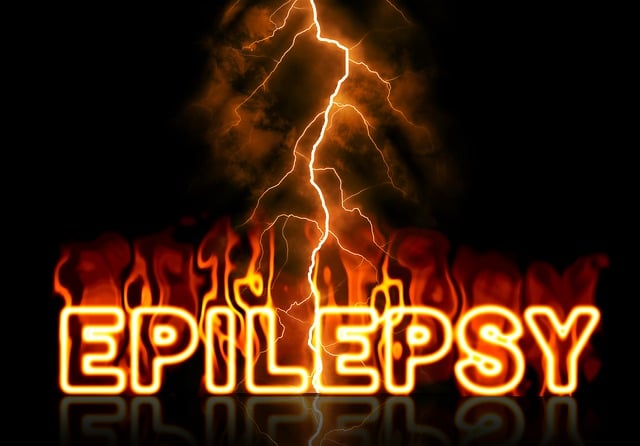
Image Source: FreeImages
## Understanding Febrile Seizures
As a parent, caregiver, or concerned individual, understanding febrile seizures is crucial for effectively preventing and managing them. Febrile seizures are convulsions that occur in young children, usually between the ages of 6 months and 5 years, and are often triggered by a sudden spike in body temperature, typically due to an illness or infection. These seizures can be a frightening experience for both the child and those witnessing it. They are generally brief, lasting for a few minutes, and are not usually associated with any long-term effects or underlying brain conditions. However, it is essential to stay calm and take appropriate measures to ensure the safety and well-being of the child during a febrile seizure.
One of the key strategies in preventing febrile seizures is to focus on managing and reducing fever when a child is unwell. This includes using appropriate fever-reducing medications as recommended by healthcare professionals, ensuring the child stays well-hydrated, and employing physical cooling methods such as tepid sponging or placing the child in a lukewarm bath. By diligently monitoring and managing fever, the risk of triggering febrile seizures can be significantly reduced.
It’s important to remember that while febrile seizures can be distressing to witness, they are usually not indicative of a chronic or recurring seizure disorder. However, if a child experiences a febrile seizure for the first time, it is crucial to seek immediate medical attention to confirm the diagnosis, rule out any underlying causes, and receive guidance on preventing future occurrences.
How to Prevent Febrile Seizures in Children
Preventing febrile seizures in children revolves around proactive measures to manage fever and overall health. Ensuring that a child’s vaccinations are up to date can significantly reduce the risk of certain infections that may lead to fever and subsequent seizures. Additionally, promoting good hygiene practices, such as regular handwashing and avoiding exposure to individuals who are unwell, can help prevent the spread of illnesses that commonly cause febrile episodes.
In cases where a child is experiencing a fever, it is essential to provide comfort and support while actively working to lower their temperature. Using age-appropriate fever-reducing medications, providing cool fluids, and dressing the child in lightweight, breathable clothing can aid in fever management. It’s important to closely monitor the child’s temperature and seek medical advice if the fever persists or if there are any concerning symptoms.
Parents and caregivers should also be aware of any potential triggers for febrile seizures in their child. By identifying specific factors that may lead to a rapid increase in body temperature, such as excessive physical activity or exposure to hot environments, steps can be taken to mitigate these risks and prevent febrile seizures from occurring.
Preventing Seizures in Pets – Tips for Dog Owners
Just as it is essential to understand and prevent seizures in humans, pet owners, particularly dog owners, should be knowledgeable about preventing seizures in their furry companions. Seizures in dogs can be caused by various factors, including epilepsy, brain tumours, or exposure to toxins. To help prevent seizures in dogs, maintaining a healthy and balanced diet is crucial. Providing high-quality, nutritionally complete food can support overall health and potentially reduce the risk of seizures.
Regular veterinary check-ups and preventive care, such as parasite control and vaccinations, are vital for maintaining a dog’s well-being and reducing the likelihood of underlying health issues that may lead to seizures. Additionally, creating a safe and low-stress environment for dogs, with ample opportunities for exercise and mental stimulation, can contribute to their overall health and potentially lower the risk of seizures.
For dogs with known seizure disorders, adhering to prescribed medication schedules and seeking guidance from a veterinarian on managing the condition is essential. It’s also important for dog owners to educate themselves on recognising the signs of an impending seizure in their pet and to create a safe space for the dog to minimise potential injury during a seizure episode.
Preventing Seizures in Adults: Lifestyle and Medical Strategies
While febrile seizures are specific to children, seizures can occur in adults due to various underlying medical conditions, such as epilepsy, brain injuries, or certain metabolic disorders. Preventing seizures in adults involves a multifaceted approach that encompasses lifestyle modifications, adherence to prescribed medications, and regular medical monitoring.
Maintaining a healthy lifestyle, including regular exercise, a balanced diet, and adequate sleep, can contribute to overall well-being and potentially reduce the frequency of seizures in adults with certain seizure disorders. Additionally, avoiding known triggers, such as alcohol or specific medications, is crucial in preventing seizures in susceptible individuals.
For individuals with diagnosed seizure disorders, strict adherence to prescribed antiepileptic medications is essential for seizure prevention. It’s imperative to follow the prescribed dosage and medication schedule as directed by a healthcare professional, as inconsistent medication use can increase the risk of seizure recurrence.
Regular medical appointments with neurologists or healthcare providers specialising in seizure management are important for ongoing monitoring and adjustment of treatment plans as needed. These appointments provide an opportunity to discuss any changes in seizure patterns, address concerns, and receive updated guidance on optimising seizure prevention strategies.
Managing Alcohol Withdrawal Seizures
Alcohol withdrawal seizures can pose a significant risk to individuals experiencing withdrawal from alcohol dependence. Preventing alcohol withdrawal seizures involves a combination of medical supervision, supportive care, and addressing the underlying alcohol use disorder. Individuals undergoing alcohol withdrawal should seek professional medical assistance to safely manage the withdrawal process and reduce the risk of seizures and other potential complications.
Medical supervision during alcohol withdrawal is crucial for monitoring and managing the withdrawal symptoms, including the risk of seizures. Healthcare professionals may utilise medications and supportive interventions to mitigate the severity of withdrawal symptoms and reduce the likelihood of seizures occurring.
In addition to medical support, individuals navigating alcohol withdrawal can benefit from a supportive environment and access to resources for addressing the underlying causes of alcohol dependence. Seeking professional counselling, participating in support groups, and establishing a strong support network can contribute to a comprehensive approach to preventing alcohol withdrawal seizures and promoting long-term recovery.
Preventing Seizures During Sleep
Seizures that occur during sleep, known as nocturnal seizures, can present unique challenges in terms of prevention and management. For individuals prone to seizures during sleep, creating a safe sleep environment is critical. This includes ensuring that the sleeping area is free from potential hazards and implementing measures to prevent injury in the event of a seizure.
Monitoring and documenting seizure activity during sleep can provide valuable insights for individuals and healthcare providers in identifying patterns and potential triggers. Maintaining a consistent sleep schedule and practising good sleep hygiene, such as creating a relaxing bedtime routine and minimising stimuli in the sleeping environment, can contribute to overall sleep quality and potentially reduce the occurrence of nocturnal seizures.
For individuals with diagnosed sleep-related seizure disorders, adhering to prescribed treatment plans and medication regimens is essential for seizure prevention. Consulting with healthcare providers specialising in sleep medicine or neurology can provide tailored approaches to managing and preventing seizures during sleep.
Preventing Seizures After Stroke
Individuals who have experienced a stroke may be at risk of developing seizures as part of their post-stroke recovery process. Preventing seizures after a stroke involves comprehensive medical management, rehabilitation, and support to reduce the risk of recurrent seizures and promote overall recovery.
Following a stroke, individuals should receive ongoing medical care and monitoring to address potential complications, including seizures. Healthcare providers may prescribe medications to reduce the risk of post-stroke seizures, and adherence to these medications is essential for long-term seizure prevention.
Engaging in post-stroke rehabilitation, including physical therapy, occupational therapy, and cognitive rehabilitation, can support overall recovery and potentially lower the risk of seizures. These rehabilitation efforts aim to enhance functional abilities, reduce disability, and address potential factors that may contribute to seizure development.
Supporting individuals in their post-stroke recovery journey, both emotionally and practically, can play a significant role in preventing seizures and promoting overall well-being. Providing a supportive and encouraging environment, assisting with daily activities, and facilitating access to rehabilitation services can contribute to a holistic approach to seizure prevention after stroke.
Natural Approaches to Preventing Seizures
In addition to conventional medical interventions, some individuals may seek natural approaches to complement seizure prevention strategies. It’s important to approach natural remedies with caution and to consult with healthcare professionals before incorporating them into a seizure prevention plan.
Certain dietary approaches, such as the ketogenic diet, have shown promise in reducing seizure frequency in some individuals with epilepsy. This high-fat, low-carbohydrate diet is thought to influence brain metabolism and neural activity, potentially contributing to seizure control.
Herbal supplements and alternative therapies, such as acupuncture and relaxation techniques, are areas of interest for some individuals seeking natural approaches to preventing seizures. However, it’s crucial to seek guidance from qualified practitioners and to communicate openly with healthcare providers to ensure that natural remedies align with overall treatment goals and do not pose any risks or interactions with prescribed medications.
Supporting Individuals with Epilepsy: Tips for Caregivers
For individuals living with epilepsy, the support and involvement of caregivers, family members, and friends play a vital role in their overall well-being and seizure management. Caregivers can make a significant difference by being knowledgeable about epilepsy, providing a supportive environment, and assisting with practical needs.
Educating oneself about epilepsy and its specific manifestations in the individual under care is essential for effective support. Understanding the person’s seizure triggers, medication regimen, and any specific care requirements can help caregivers respond appropriately during seizure episodes and contribute to overall seizure prevention.
Creating a safe and supportive living environment is crucial for individuals with epilepsy. This includes minimising potential hazards, ensuring accessibility to necessary medications and medical supplies, and fostering open communication to address any concerns or changes in the individual’s condition.
Encouraging individuals with epilepsy to adhere to their prescribed treatment plans, including medication schedules and follow-up appointments, is an important aspect of caregiver support. Assisting with medication management, providing emotional support, and advocating for the individual’s needs within the healthcare system can contribute to a comprehensive approach to seizure prevention and overall well-being.
Conclusion
Empowering oneself with knowledge about seizures and their prevention is a proactive step towards promoting safety, well-being, and support for individuals across different age groups and circumstances. By understanding the specific considerations for preventing febrile seizures in children, managing alcohol withdrawal seizures, supporting individuals with epilepsy, and addressing seizures in pets, we can create environments that prioritise seizure prevention and holistic care.
As we observe National Epilepsy Day, let us continue to raise awareness, advocate for access to quality care, and foster inclusive communities that support individuals living with epilepsy and other seizure disorders. By working together to promote prevention, support, and understanding, we can make meaningful strides in improving the lives of those impacted by seizures.
If you or someone you know is affected by seizures, seek professional medical guidance and support. Together, we can empower individuals and communities with the knowledge and resources to prevent and manage seizures effectively.
Empower Your Knowledge: How to Prevent Febrile Seizures on National Epilepsy Day
CTA: If you or someone you know is affected by seizures, seek professional medical guidance and support. Together, we can empower individuals and communities with the knowledge and resources to prevent and manage seizures effectively.




